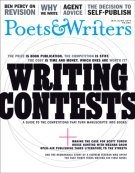Marlantes was elated. But though he'd now been embraced by two publishers, he still didn't have an agent, and he needed one to help him negotiate the terms of his contract and guide him through the publication process. With Entrekin on his side, Marlantes no longer had any trouble finding representation. "I went from no one talking to me to an embarrassment of riches," he says. Entrekin contacted three agents he thought might be interested, and some other agents got wind of the impending deal, and also reached out to Marlantes. Although he was basking in the praise, Marlantes found himself skeptical of some agents' effusiveness. He loved his novel—he'd dedicated much of his life to it—but he also knew it probably wasn't perfect. Eventually he settled on Sloan Harris of International Creative Management, whom he praises as "an honest-feedback guy."
Harris was deeply impressed by Marlantes's writing, but he admits that Entrekin's recommendation made the book a less intimidating prospect. "If I had gotten a manuscript that was this long, I certainly would have started my reading with some concerns for length and probably feeling a little overwhelmed by the undertaking," he says. "I will not throw any stones at any of the readers who had a shot at this before I did, because I could have been among them, unfortunately. I had the luxury of getting to read it when I knew the publishers were hot for it."
After having such a positive editing experience with Duane at El León, Marlantes says he leapt at another chance to improve his book. His agent also thought it was crucial. "I insisted that I wanted us to go through a very strong and aggressive editorial process with his new publisher," Harris says. "The version I read was probably 20 or 25 percent longer" than what Grove/Atlantic ultimately published. "I really feel it's a much finer book for all those efforts."
"I was daunted the first time that I saw the manuscript," Marlantes's editor at Grove/Atlantic, Jofie Ferrari-Adler, says, laughing. But despite its length, once he began reading, Ferrari-Adler (who is also a contributing editor of this magazine) found the story incredibly moving. "I've read a lot of war writing, and with the possible exception of The Things They Carried by Tim O'Brien, I don't think I'd ever really felt it quite as deeply—the combination of absurdity and randomness and terror. The book has a cumulative power; it really builds."
Having already been professionally edited, the book came to Ferrari-Adler in very good shape. "You could see a little cutting and tightening that might help it, but it was a masterpiece when it hit my desk. I felt afraid to mess with it. That's not something I usually feel." In the course of editing, Marlantes sent his new editor an Excel spreadsheet that mapped out the original manuscript, showing what he had cut throughout much of the long process and keeping track of the balance "between color, dialogue, and straight narrative." Because the book "is so big and so sprawling," Ferrari-Adler says, "it helped to look at where and what we were trimming."
As a joint venture between El León and Grove/Atlantic, Matterhorn was published in hardcover with a first print run of 60,000—that's 58,800 copies more than Marlantes had originally counted on. And in his contract (for one book only) he was thrilled to receive what he describes as "a modest, pretty industry-standard advance." Truly a collaborative effort, the final product benefited from the support of a major New York City publisher and a tiny West Coast nonprofit, a giant corporate bookstore and a handful of beloved indies, all rallying behind a book that needed to fall into the right hands at the right time. "You think there's a war between Barnes & Noble and the independents—and on some level there is—but this book wouldn't have gotten published without both of them," Marlantes says. Barnes & Noble had the leverage and connections to bring Matterhorn to a broad audience, but Marlantes gives independent bookstores—with their informal networks, their intimate scale, and their "interconnectedness"—credit for recognizing the worth of his book before the big guys gave it their stamp of approval. The same might be said of the respective involvements of El León and Grove/Atlantic, too.
Still, Marlantes enjoys the occasional moment of schadenfreude. Once his deal with Grove/Atlantic was announced, he got a letter from an agent who remembered rejecting his book several years back, sight unseen. "It said, ‘I'm never going to turn down a book based on the market again,'" Marlantes recounts. "‘I'm going to read it first. Would you mind signing a copy for my son?'"
Eryn Loeb is a freelance writer and editor in New York City.








